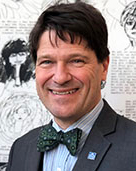
The Department of Learning in Engineering Sciences faces a slightly different challenge to many other departments at KTH. While we share the common mission of teaching, research and collaboration with society with the rest of KTH, we also pursue research, innovation and developmental agendas that are of direct relevance to the educational mission of KTH and also Sweden.
Our department is committed to the vision that all staff and students involved in teaching and learning at KTH shall have the most well developed, supportive, exciting, efficient and personally rewarding environment we can achieve with the knowledge and resources available.
We aim to develop and deliver world leading higher education and equip our students with the skills, knowledge and dispositions necessary to lead technological and societal development, and position Sweden at the forefront as a developed and educated nation.
Delivering both world leading research, and also putting that research to use in the context of KTH’s internal development in both digitalisation of education, and also new pedagogies and ways to educate students, is a considerable challenge. As a way to meet this challenge the departmental research and development activity is guided by three future scenarios (A to C) which we pursue in parallel. These scenarios evolve from a single question:
“Is it appropriate that graduates who will work in a society dominated by Industry 4.0 should be educated in Education 1.0?”
A. Education 1+ – work within existing frameworks exploring the use of new pedagogical approaches and digital tools to enhance the KTH teaching and learning environment.
Examples of this type of activity include developing digital solutions e.g. Canvas to LADOK grade transfer, producing digital resources (e.g. learning glass presentations) and digital resources for flipped classroom teaching, and enhancing classroom pedagogy through the courses, networks, and other collegial activities we offer in theory and practice of teaching in higher education.
B. Education 1.5 – work to establish new ways to offer courses and programmes, help to evolve our education to make it more agile and relevant, while maintaining quality. Examples of this type of activity include, evaluation of new ways to assess knowledge (e.g. the ongoing digital examination project), KTH’s MOOC development project, and several ERASMUS+ projects currently underway.
C. Education 2 – new models and means to collaborate with students and life-long learners to deliver high quality education in a digital resource rich environment where educational activity benefits from transformational forces such as AI, Machine Learning, Learning Analytics, Virtual Reality, Augmented Reality. This type of research based exploration into new paradigms of education paves the way for experimental work and development that has the potential ro revolutionise education in a manner similar to that we observe in industrial and societal sectors.
One thing is certain however, the Department of Learning in Engineering Sciences cannot achieve its purpose in isolation. Collaboration and activities together with our colleagues and KTH leadership is the only way to make lasting enhancement to education and learning at KTH a reality. We are working to provide the knowledge and insight needed to transform our education, but we can only achieve anything real in collaboration with all the Schools of KTH and our colleagues in the disciplines where the teaching and learning challenges are an everyday reality. Finding better ways to collaborate and to make our expertise accessible to all of KTH is a central question, and one with which I expect to work intensively over the coming years.
We hope that many of you will work together with us in achieving the education of the future at KTH.
/Arnold Pears, Head of the Department of Learning in Engineering Sciences
